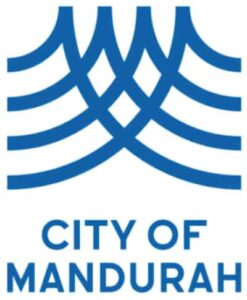Our journey
What council has achieved in the past in energy efficiency, renewable energy, sustainable transport or broader sustainability
In 2019 Council endorsed a revised Caproate Emissions Reduction Strategy which outlined the opportunities for GHG emissions reductions for
- Internal operations (“Organisational Circle of Control”)
More broadly throughout the Community and the State of WA, mainly through support of and participation in other industry and government projects/initiatives. (“Organisational Circle of Influence”)
Significant Relevant Projects
- Installation of a geothermal heating system as part of the redevelopment of the Mandurah Aquatic and Recreation Centre; resulting in annual carbon abatement of 286 t CO2-e
- Installation of 642 kW of solar PV & battery systems across City run buildings / sites; resulting in annual carbon abatement of 688 t CO2-e (Under the ongoing “Solar-Plan”.)
- Installation of numerous LED lighting upgrades to City run buildings, reserves & carparks; resulting in average electricity savings per site of 22%. (Under the ongoing “LED-Plan”.)
- Participation in Western Power’s “Community Powerbank” rollout; resulting in two Community battery installations in Mandurah. These installations allow for greater self-consumption of residential rooftop solar PV and contribute to grid stability and lower network costs by load shifting.
- Support of “Renewable Hydrogen Transport Hub in the City of Mandurah” feasibility study undertaken by Hazer Group under the WA Renewable Hydrogen Fund.
- Establishment of “Peel South-West Metro Hydrogen Technology Cluster” by partnering with Murdoch University and 5 other entities.
What council hopes to achieve in the future in energy efficiency, renewable energy, sustainable transport or broader sustainability
In 2019 Council endorsed a 2030 Renewable Energy Target of 30% of all energy consumed (this includes gas and transport fuels not just electricity).
Current projects underway that will contribute to meeting this target
- Participation in WLAGA led aggregated renewable energy “Power Purchase Agreement”
- Commitment to provide municipal waste to the Phoenix/Avertas Energy Waste-to -Energy plant through the Rivers Regional Partnership which will eliminate all Council & Community waste associated GHG emissions.
This target will be revised every two years and in particular when the State’s utility provides the City with the option to replace street lighting with LEDs; as this is currently the largest barrier in the City being able to significantly decarbonise its operations.
What council hopes to gain from being a member of the Cities Power Partnership
The City hopes to use the CPP Platform
- To share and gain knowledge
- Seek out for collaboration opportunities
- As part of the City’s community environmental communication strategy
